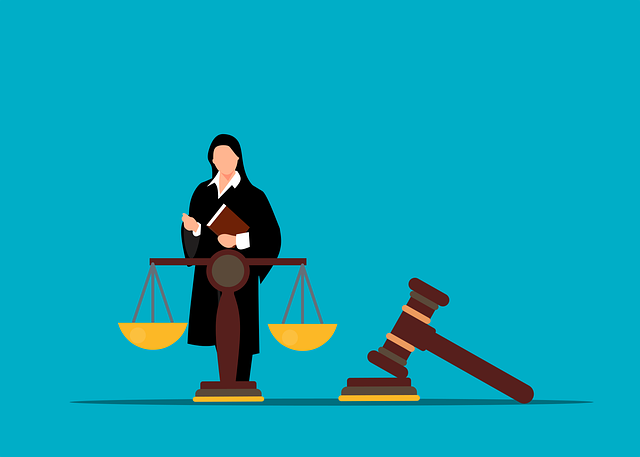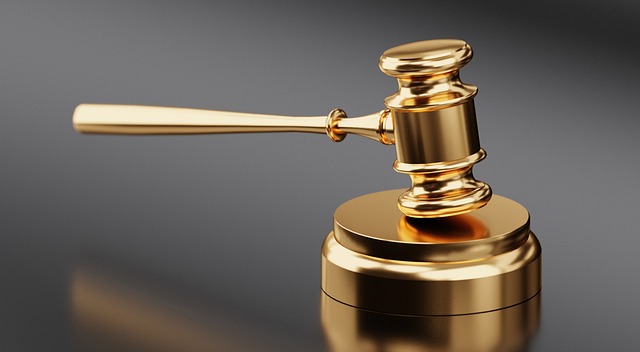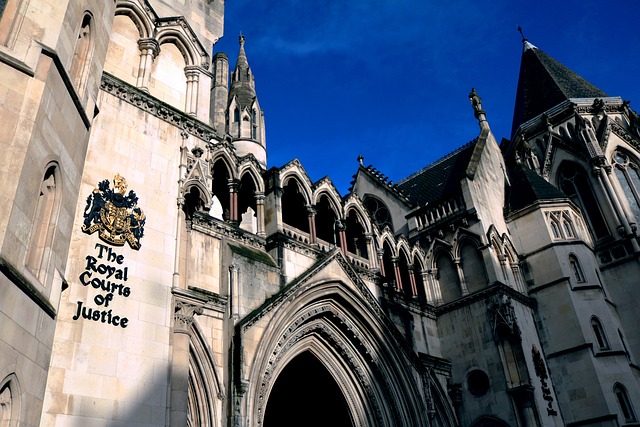Fair trial advocacy is crucial for criminal defense, ensuring justice and protecting rights through competent representation, impartial proceedings, and strategic navigation of legal complexities. Defense attorneys challenge evidence, safeguard against self-incrimination, and promote diverse jury pools to prevent bias. Balancing powerful evidence with procedural fairness, they uphold due process and natural justice. Post-trial reviews further ensure integrity by scrutinizing cases for potential errors, reinforcing public trust in a fair and just criminal justice system.
Ensuring fair trials is the cornerstone of any just society. In criminal defense cases, a rigorous system of checks and balances guarantees defendants their rights. This article delves into the crucial aspects of fair trial advocacy, exploring essential procedural safeguards designed to protect innocence. From understanding the fundamental principles of justice to navigating complex issues like bias-free jury selection and balanced evidence presentation, these elements are vital for upholding the integrity of our legal system.
- Understanding the Cornerstone of Justice: Fair Trials
- Criminal Defense: Navigating Procedural Safeguards
- Preserving Innocence: Right to Counsel and Effective Representation
- Bias-Free Jury Selection: Ensuring Impartiality
- Balancing Evidence and Fairness in Trial Presentations
- Post-Trial Review: Safeguarding the Integrity of Justice
Understanding the Cornerstone of Justice: Fair Trials

A fair trial is the cornerstone of justice in any criminal defense case, serving as a bulwark against potential miscarriages of justice. It ensures that all parties involved have equal access to the legal process, safeguarding individual rights and maintaining societal trust in the criminal justice system. Advocacy for fair trials is paramount, focusing on ensuring every defendant is treated with dignity, has competent legal representation, and faces proceedings that are impartial and transparent.
This concept is not merely procedural; it’s deeply ingrained in the principles of due process and natural justice. A robust defense strategy within this framework becomes instrumental in protecting the rights of the accused. By championing fair trial advocacy, we strengthen the integrity of our legal system, fostering an environment where justice is not just sought but also achieved.
Criminal Defense: Navigating Procedural Safeguards

Criminal defense attorneys play a pivotal role in ensuring fair trials, navigating complex procedural safeguards designed to protect the rights of the accused. From challenging inadmissible evidence to protecting against self-incrimination, these professionals act as advocates for their clients, ensuring every step adheres to legal principles. They scrutinize police procedures, investigate potential bias, and challenge any unfair tactics, thereby safeguarding the integrity of the judicial process.
By employing strategic defenses and leveraging procedural mechanisms, criminal defense lawyers foster an environment where justice can be served impartially. Their expertise in constitutional law, evidentiary rules, and due process ensures that the rights of the defendant are respected, providing a strong foundation for a fair trial and fostering public trust in the criminal justice system.
Preserving Innocence: Right to Counsel and Effective Representation

Preserving innocence is a cornerstone of our criminal justice system, and it hinges on two fundamental rights: the right to counsel and the right to effective representation. These rights are paramount in ensuring that every defendant, regardless of their background or resources, receives a fair trial. Legal counsel plays a pivotal role in advocating for an individual’s interests, challenging evidence, and protecting against potential constitutional violations.
Effective representation involves multiple aspects: thorough investigation, robust cross-examination, and persuasive argumentation. It means presenting the best possible defense, ensuring that all relevant facts are considered, and providing a robust challenge to the prosecution’s case. This not only safeguards against wrongful convictions but also upholds the integrity of our legal system through fair trial advocacy.
Bias-Free Jury Selection: Ensuring Impartiality

A cornerstone of a fair trial is achieving impartial jury selection, where potential jurors are unbiased and can make decisions based solely on the presented evidence. This process involves meticulous screening to identify any preconceived notions or biases that could influence their judgment. Fair trial advocacy groups advocate for diverse jury pools, as representation from various backgrounds ensures a broader range of perspectives, fostering more balanced deliberation.
The challenges lie in recognizing implicit biases and ensuring transparency during selection. Legal professionals play a crucial role in challenging biased questions or practices, promoting an environment where each juror can remain objective. By implementing robust bias-free jury selection methods, the justice system takes significant steps towards upholding the principles of fairness and equality in criminal defense cases.
Balancing Evidence and Fairness in Trial Presentations

Ensuring a fair trial involves a delicate balance between presenting compelling evidence and upholding fairness throughout the judicial process. In criminal defense, lawyers play a pivotal role in navigating this equilibrium by advocating for their clients’ rights while adhering to legal protocols.
The challenge lies in presenting evidence that is both robust and unbiased. Defense attorneys must carefully select and interpret data, testimony, and physical proof to construct a compelling argument without prejudicing the jury or unduly influencing their decision-making process. Fair trial advocacy requires a strategic approach, where lawyers focus on the admissibility and relevance of evidence while also safeguarding against any potential bias or misunderstanding that could compromise the integrity of the trial.
Post-Trial Review: Safeguarding the Integrity of Justice

Post-trial review plays a pivotal role in ensuring the integrity of justice within criminal defense cases. This meticulous process involves comprehensive examination of the trial’s procedural aspects and legal rulings to identify any potential errors or miscarriages of justice. By delving into the evidentiary handling, judge’s decisions, and counsel’s performances, post-trial reviews safeguard the fairness and accuracy inherent in our judicial system.
Advocates for fair trial practice champion this review mechanism as a crucial step to maintain public trust. It allows for the correction of errors, ensures legal standards are met, and ultimately reinforces the principle that every individual is entitled to a just and impartial trial. This rigorous scrutiny fosters transparency, strengthens legal protocols, and reinforces the fundamental values upon which our criminal justice system stands.






